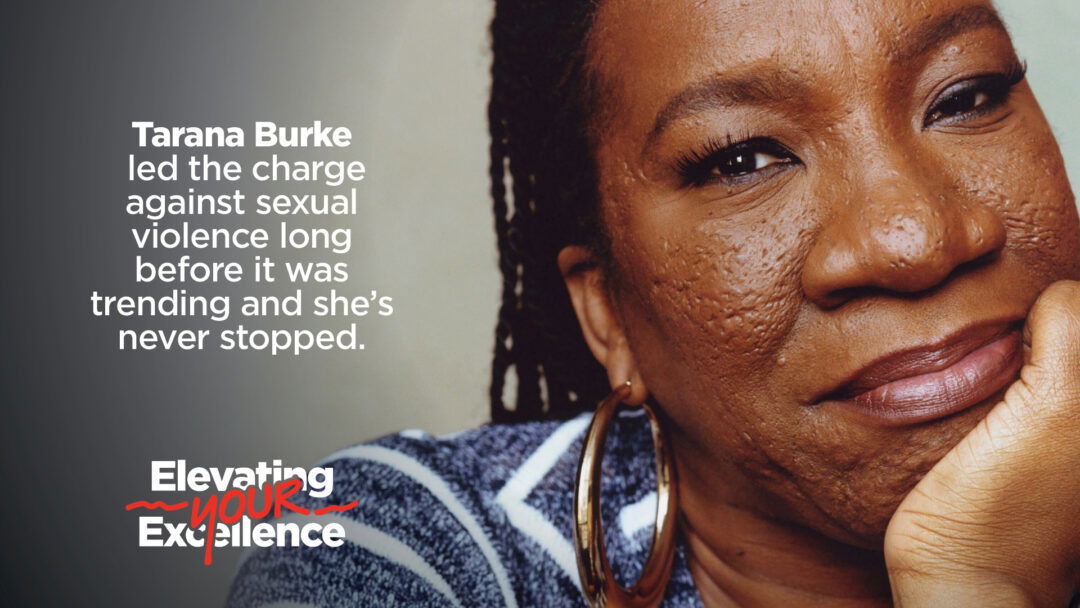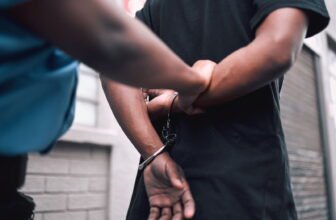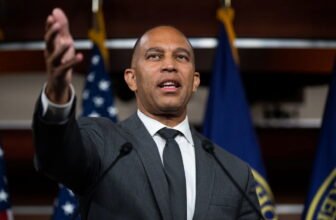Tarana Burke, a formidable activist, community organizer, and executive, has indelibly shaped the discourse surrounding sexual violence and empowerment through her foundational work on the ‘Me Too’ Movement. Her resonant hashtag, #meToo, has transcended digital platforms, registering more than 19 million uses on Twitter alone since its viral resurgence in 2017.
The movement’s widespread impact earned Burke and other “Silence Breakers” the prestigious distinction of TIME Magazine’s Person of the Year in 2017.
Born on Sept. 12, 1973, in The Bronx, New York, Burke’s commitment to activism and community organizing blossomed early. In the late 1980s, as a teenager, she immersed herself in the 21st Century Youth Leadership Movement, spearheading campaigns and initiatives addressing critical issues such as housing inequality, racial discrimination, and economic injustice across New York City. This early fervor propelled her to Alabama State University, a historically Black college or university (HBCU), where she honed her organizational acumen and continued her advocacy throughout her collegiate career.
After graduating, she returned to Selma, Alabama, to work with 21st Century, where she encountered numerous young Black women who were survivors of sexual violence and abuse. As a survivor herself, Burke deeply identified with their experiences, pivoting her efforts toward providing crucial resources, support, and safe spaces for these young women to share their narratives.
The genesis of the “Me Too” Movement traces back to the 90s, when Burke, then a youth camp director, had a pivotal encounter with a young woman disclosing sexual abuse. Though unable to offer an immediate, comprehensive response, this moment became the profound catalyst for the movement she would formally establish a decade later. Continuing her focus on young women of color, Burke co-founded Jendayi Aza, an African-centered Rites of Passage program for girls, which subsequently evolved into her nonprofit organization, JustBe, Inc., founded in 2007. This organization was designed to empower and encourage young Black girls through unique programming and workshops, achieving such significant community impact that every public school in Selma, Alabama, adopted its program.
Shortly thereafter, the “Me Too” Movement was formally born, conceived as a mechanism for young women of color to articulate their experiences, with Burke employing the phrase ‘me too’ to foster “empowerment through empathy.” Her campaign aimed not only to facilitate healing but also to train survivors to become leaders within their communities.
While developing “Me Too,” Burke maintained an active presence in the nonprofit sector. Her roles included managing director of Art Sanctuary, a Black arts organization in Philadelphia, and executive director of the Black Belt Cultural Arts Center, where she developed community programs for underserved youth.
In Selma, she served as a curatorial consultant and special projects director at the National Voting Rights Museum & Institute, where she notably contributed to the organization of the annual Selma Bridge Crossing Jubilee, commemorating the historic Selma Voting Rights Movement. Her extensive work earned her a consulting position on Ava DuVernay’s acclaimed film, Selma, in 2014.
Years later, Burke’s work gained unprecedented global prominence during the 2017 Harvey Weinstein sexual abuse scandal, when her hashtag #metoo rapidly went viral, inspiring individuals worldwide to share their stories and align with the movement.
Following this surge of global support, Burke emerged as a pivotal global leader, igniting a broader conversation about sexual violence. Her steadfast commitment to racial justice, arts and culture, anti-violence, and gender equity has been a hallmark of her nearly three-decade career. She consistently utilizes her platform to convey that healing is attainable, that survivors are inherent leaders, and that eradicating sexual violence must be a paramount social justice imperative.
In 2018, Burke founded “Me Too.” International, a global nonprofit dedicated to advancing the movement’s vision and framework, serving as a convener, innovator, and organizer across mainstream and grassroots spheres to dismantle systems that perpetuate sexual violence, particularly within Black, queer, trans, disabled, and all communities of color.
Burke’s unwavering dedication has garnered numerous accolades, including her recognition as one of USA Today’s Women of the Decade in 2020 and the prestigious Sydney Peace Prize in 2019.
She also received the Harvard Gleitsman Citizen Activist Award. In 2018, she attended the 75th Annual Golden Globe Awards as a guest of actress Michelle Williams, further amplifying the movement’s visibility. Burke is a frequent commentator on social issues, with her insights published in prominent outlets such as Teen Vogue, Glamour, Ebony, Essence, and The Root, among others.
Most recently, the author of “Unbound” has continued her impactful work on multiple fronts. She weighed in on the high-profile Diddy trial, offering her perspective on Instagram.
Furthermore, she recently convened the # MeToo. Global Network Pan-African gathering on the sun-kissed shores of Diani Beach, Kenya, bringing together over three dozen organizations from 16 countries.
“We’re still basking in the glow of what we created together last week. On the sun-kissed shores of Diani Beach, Kenya, more than three dozen organizations, representing 16 countries across the continent, came together for Me Too. Global Network Pan-African convening: ‘What can we do together, that we can’t do apart?’”
“We gathered as survivors, organizers, advocates, artists, and healers — each carrying stories, wisdom, and a shared dream of a world free from sexual and gender-based violence. Over several powerful days, we engaged in deep strategizing, honest dialogue, collective visioning, and intentional wellness practices that nourished both our spirits and our movement. Together, we built trust, connection, and a deep, rooted sense of solidarity. Thank you to every attendee, every member of our Global Network, and every single person who made this convening so special,” Burke shared, reflecting on the powerful convening focused on collective action and intentional wellness.
Burke currently serves as the senior director of Girls for Gender Equity in Brooklyn, New York, and resides in New York City with her daughter.
RELATED CONTENT: Elevating Your Excellence: Fawn Weaver’s Entrepreneurial Vision Forges A Legacy Beyond Whiskey







